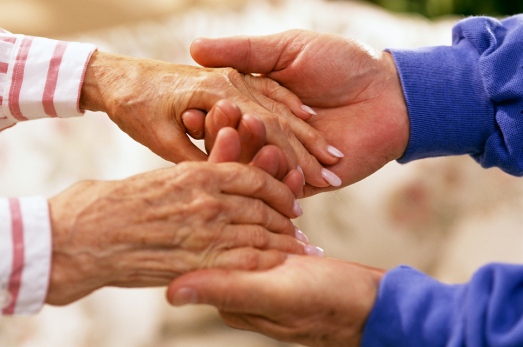 I went on a lovely walk with a good friend today. We caught up on our plans for holiday celebrations, we talked about our children’s activities, and we giggled about our aging bodies. About half way through our trek the conversation changed, my friend shared a part of her life that was extremely difficult for her -a part of her life where she often felt guilty, inadequate, emotionally depleted, and sad. She, like so many baby boomers was facing the difficult task of caring for an aging parent.
I went on a lovely walk with a good friend today. We caught up on our plans for holiday celebrations, we talked about our children’s activities, and we giggled about our aging bodies. About half way through our trek the conversation changed, my friend shared a part of her life that was extremely difficult for her -a part of her life where she often felt guilty, inadequate, emotionally depleted, and sad. She, like so many baby boomers was facing the difficult task of caring for an aging parent.
Having worked with the geriatric population and their families for several years, I thought I’d pass along some insights I found to be significantly helpful to the caretakers of the elderly when entering into this phase life.
First, we need to accept that things have changed. When our parents begin depending upon us- their children for their basic care, our world has changed. Be prepared for a radically new paradigm. Old roles may not apply; old methodologies may not apply; old emotions may not apply. Be prepared to work from a whole new script.
Take it slowly. Taking care of an elderly parent is generally a long-term process, don’t rush it. You and they both are in uncharted territory. Let the process uncover itself naturally; let whatever happens unfold organically.
Try to understand that when you start taking care of your parent, they lose the one thing they’ve always had in relationship to you: authority. That’s something that is not going to be easy for your parent to give up. Expect them, in one way or another, to lash out about that loss. Try your best to have compassion for what they are experiencing-remember most of us will be in their shoes some time down the road.
Give them their autonomy whenever possible, offer your parent options instead of orders. Ifs important for them to continue to feel as if they, and not you, are running their lives. Let them decide as much as they can about their own care, and help them by supporting the healthy choices they’ve made on their own.
Encourage your loved one to participate in social activities as much as possible- keeping them actively connected with friends and family enhances their quality of life- and helps affirm for them that the are still of value to others.
During this phase of your life, remember to take care of the caretaker- that’s you! Take walks; stretch out; eat right; make sure you spend quality time away from Mom or Dad. Make time to rejuvenate yourself as a critical part of your care routine for your parent. Your life still needs to be about you, and your loved one will be pleased to know that they are not depleting you of your personal joy.
This can be an intimate and loving time for both you and your parent; don’t forget to look for the silver lining. I promise it’s in there!
